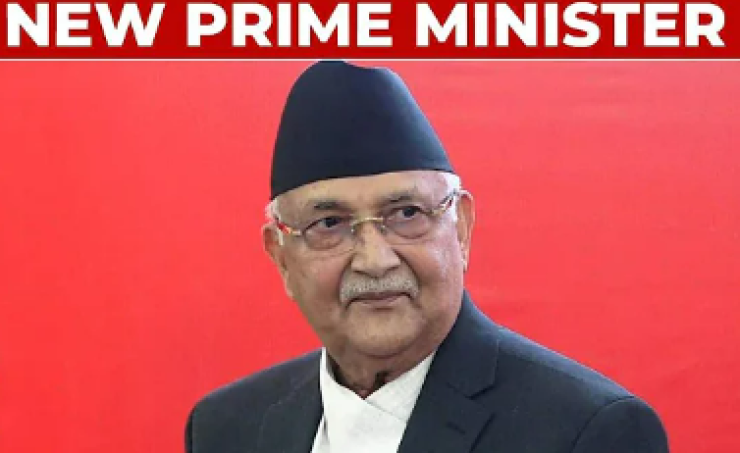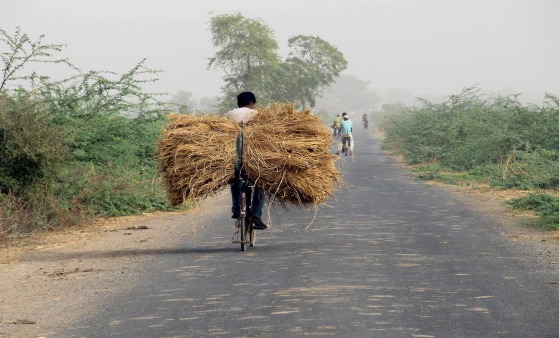
K P Sharma Oli, leader of Nepal's largest communist party, was sworn in as Prime Minister for the fourth time on Monday. The 72-year-old veteran politician takes the helm of a new coalition government that faces significant challenges in providing political stability to the Himalayan nation.
Oli's appointment comes after his predecessor, Pushpa Kamal Dahal 'Prachanda,' lost the vote of confidence in the House of Representatives on Friday. This development triggered the formation of a new government under Article 76 (2) of the Nepalese Constitution.
President Ram Chandra Paudel appointed Oli as the new Prime Minister on Sunday, following which he took the oath of office at Shital Niwas, the main building of Rashtrapati Bhawan. The new Cabinet is expected to be sworn in alongside the Prime Minister.
The path to Oli's appointment was paved late Friday night when he staked his claim to become the next Prime Minister. He secured the backing of Nepali Congress president Sher Bahadur Deuba and submitted signatures of 165 House of Representatives members, including 77 from his own party and 88 from the Nepali Congress.
This new coalition marks a significant shift in Nepal's political landscape. Oli's Communist Party of Nepal-Unified Marxist Leninist (CPN-UML) has joined forces with the centre-left Nepali Congress party, creating a majority in the 275-seat parliament. Under the power-sharing arrangement, Oli and Deuba are set to rotate the prime minister's post until the next general election in 2027.
As per constitutional requirements, Oli now faces the task of securing a vote of confidence from Parliament within 30 days of his appointment. He will need a minimum of 138 votes in the House of Representatives to maintain his position.
Oli's political career spans several decades. He entered politics as a teenager and spent 14 years in prison for his role in campaigning to overthrow the monarchy. After joining the communist party in 1987, he steadily rose through the ranks. His previous terms as Prime Minister ran from October 2015 to August 2016, February 2018 to July 2021, and a brief stint in 2021.
Known for his nationalist views, Oli is perceived as being more favourable towards China in a country positioned between two giant neighbours, China and India. His appointment comes at a time when Nepal faces escalating economic challenges, particularly in the wake of the coronavirus pandemic's devastating impact on the country's crucial tourism industry.
Oli's return to power may bring with it the baggage of past controversies. Notably, during his 2020 tenure, he stirred significant debate by claiming that Lord Rama, a central figure in Hinduism, was born in Nepal rather than India. This assertion, coupled with hints from Nepal's archaeological department about possible excavations in the area Oli suggested, touched a nerve in neighbouring India, particularly with the right-wing Hindu nationalists and the leadership of the Bhartiya Janata Party, a right-wing political party which was in power in India and continues to be.
Despite these past controversies, Modi extended his congratulations to Oli, expressing a desire to work closely with him to strengthen the friendship between the two countries and expand mutually beneficial cooperation. Similarly, the Indian National Congress, through its president Mallikarjun Kharge, conveyed best wishes to Oli, emphasising the unique ties of friendship and partnership shared by India and Nepal.
Oli's return to power comes amidst a backdrop of political turbulence in Nepal. The country, which became a federal republic in 2008 following a decade-long civil war, has seen several governments come and go in the past decade. This instability has posed significant challenges to addressing the nation's pressing economic and developmental needs.
“This government is formed as a national consensus government with an agenda to amend the constitution with a weak opposition,” said Tanka Subedi, Director of Lead-Community Development Program at Human Development and Community Services while speaking to Christian Today. “If we can raise enough voice within the country and in the international level, we may be able to see positive changes in the constitution regarding FoRB (Freedom of Religion or Belief). But if there is not enough voice and pressure then we may loose some of the freedom we are enjoying now,” said Subedi.




